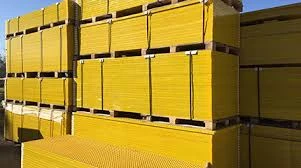
-
 Afrikaans
Afrikaans -
 Albanian
Albanian -
 Amharic
Amharic -
 Arabic
Arabic -
 Armenian
Armenian -
 Azerbaijani
Azerbaijani -
 Basque
Basque -
 Belarusian
Belarusian -
 Bengali
Bengali -
 Bosnian
Bosnian -
 Bulgarian
Bulgarian -
 Catalan
Catalan -
 Cebuano
Cebuano -
 China
China -
 China (Taiwan)
China (Taiwan) -
 Corsican
Corsican -
 Croatian
Croatian -
 Czech
Czech -
 Danish
Danish -
 Dutch
Dutch -
 English
English -
 Esperanto
Esperanto -
 Estonian
Estonian -
 Finnish
Finnish -
 French
French -
 Frisian
Frisian -
 Galician
Galician -
 Georgian
Georgian -
 German
German -
 Greek
Greek -
 Gujarati
Gujarati -
 Haitian Creole
Haitian Creole -
 hausa
hausa -
 hawaiian
hawaiian -
 Hebrew
Hebrew -
 Hindi
Hindi -
 Miao
Miao -
 Hungarian
Hungarian -
 Icelandic
Icelandic -
 igbo
igbo -
 Indonesian
Indonesian -
 irish
irish -
 Italian
Italian -
 Japanese
Japanese -
 Javanese
Javanese -
 Kannada
Kannada -
 kazakh
kazakh -
 Khmer
Khmer -
 Rwandese
Rwandese -
 Korean
Korean -
 Kurdish
Kurdish -
 Kyrgyz
Kyrgyz -
 Lao
Lao -
 Latin
Latin -
 Latvian
Latvian -
 Lithuanian
Lithuanian -
 Luxembourgish
Luxembourgish -
 Macedonian
Macedonian -
 Malgashi
Malgashi -
 Malay
Malay -
 Malayalam
Malayalam -
 Maltese
Maltese -
 Maori
Maori -
 Marathi
Marathi -
 Mongolian
Mongolian -
 Myanmar
Myanmar -
 Nepali
Nepali -
 Norwegian
Norwegian -
 Norwegian
Norwegian -
 Occitan
Occitan -
 Pashto
Pashto -
 Persian
Persian -
 Polish
Polish -
 Portuguese
Portuguese -
 Punjabi
Punjabi -
 Romanian
Romanian -
 Russian
Russian -
 Samoan
Samoan -
 Scottish Gaelic
Scottish Gaelic -
 Serbian
Serbian -
 Sesotho
Sesotho -
 Shona
Shona -
 Sindhi
Sindhi -
 Sinhala
Sinhala -
 Slovak
Slovak -
 Slovenian
Slovenian -
 Somali
Somali -
 Spanish
Spanish -
 Sundanese
Sundanese -
 Swahili
Swahili -
 Swedish
Swedish -
 Tagalog
Tagalog -
 Tajik
Tajik -
 Tamil
Tamil -
 Tatar
Tatar -
 Telugu
Telugu -
 Thai
Thai -
 Turkish
Turkish -
 Turkmen
Turkmen -
 Ukrainian
Ukrainian -
 Urdu
Urdu -
 Uighur
Uighur -
 Uzbek
Uzbek -
 Vietnamese
Vietnamese -
 Welsh
Welsh -
 Bantu
Bantu -
 Yiddish
Yiddish -
 Yoruba
Yoruba -
 Zulu
Zulu
frp underground tank
Understanding FRP Underground Tanks A Comprehensive Overview
Fiber Reinforced Polymer (FRP) underground tanks are gaining significant attention across various industries due to their advanced properties and applications. As the world turns more toward sustainable and efficient solutions in storage, FRP tanks have emerged as a viable alternative to traditional steel and concrete tanks. This article explores the characteristics, advantages, applications, and considerations associated with FRP underground tanks.
What is FRP?
FRP, or Fiber Reinforced Polymer, is a composite material made of a polymer matrix reinforced with fibers, typically glass, carbon, or aramid. This combination grants FRP unique properties such as high strength-to-weight ratio, corrosion resistance, and flexibility. These attributes make FRP an ideal candidate for constructing underground storage tanks, especially in environments subject to chemical exposure, moisture, and extreme conditions.
Key Advantages of FRP Underground Tanks
1. Corrosion Resistance One of the most significant advantages of FRP tanks is their resistance to corrosion. Unlike traditional steel tanks that can rust over time, FRP materials can withstand harsh chemicals and corrosive environments without deteriorating, thus ensuring longevity and reducing maintenance costs.
2. Lightweight Construction FRP tanks are considerably lighter than their concrete and steel counterparts. This lightweight characteristic simplifies transportation and installation, especially in locations that may otherwise pose logistical challenges for heavier materials.
3. Customizability FRP tanks can be manufactured in various sizes and shapes to meet specific storage needs. This versatility allows for tailored solutions suitable for different applications, from fuel storage to wastewater management.
4. Resistance to Temperature Fluctuations FRP materials are designed to withstand a range of temperatures, making them suitable for diverse climates. Their thermal stability helps maintain the integrity of the stored products, especially sensitive materials that may be affected by extreme temperatures.
5. Environmental Impact As industries increasingly prioritize sustainable practices, FRP tanks offer environmental benefits. Their durability reduces the likelihood of leaks and contamination, promoting safe storage practices and compliance with environmental regulations.
frp underground tank

Applications of FRP Underground Tanks
FRP underground tanks are used in various sectors, including
- Petroleum and Fuel Storage They are commonly used for storing gasoline, diesel, and other fuels due to their ability to resist corrosion from hydrocarbons. - Wastewater Treatment FRP tanks are utilized in wastewater facilities for both storage and treatment processes, aiding in effective waste management. - Chemical Storage Industries handling hazardous chemicals often prefer FRP tanks for their stability and resistance to aggressive substances, which reduces the risk of environmental contamination. - Water Storage In agricultural and municipal applications, FRP tanks serve as reliable sources for water storage, particularly in areas prone to water scarcity.
Considerations for Implementation
While FRP underground tanks offer numerous benefits, there are important considerations to keep in mind
- Initial Cost The upfront cost of FRP tanks may be higher than traditional tanks. However, this expense can be offset by reduced maintenance and longer lifespan.
- Installation Expertise Proper installation requires specialized skills to ensure the structural integrity and effective performance of the tanks. Engaging experienced professionals is crucial.
- Regulatory Compliance Depending on the region, specific regulations govern the installation and use of underground tanks. Ensuring adherence to local, state, and federal guidelines is essential.
Conclusion
FRP underground tanks represent a modern and efficient solution for various storage needs, particularly in challenging environments. With their durability, corrosion resistance, and versatility, they are positioned as a favorable choice for industries looking to enhance their storage capabilities sustainably. As technological advancements continue to evolve, the use of FRP materials is likely to grow, fostering innovation in storage solutions across multiple sectors.









